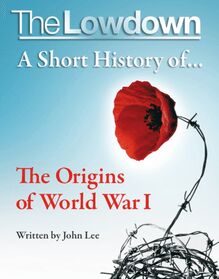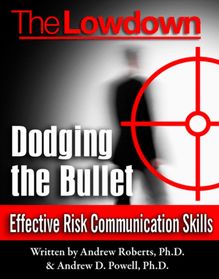-
 Univers
Univers
-
 Ebooks
Ebooks
-
 Livres audio
Livres audio
-
 Presse
Presse
-
 Podcasts
Podcasts
-
 BD
BD
-
 Documents
Documents
-
- Cours
- Révisions
- Ressources pédagogiques
- Sciences de l’éducation
- Manuels scolaires
- Langues
- Travaux de classe
- Annales de BEP
- Etudes supérieures
- Maternelle et primaire
- Fiches de lecture
- Orientation scolaire
- Méthodologie
- Corrigés de devoir
- Annales d’examens et concours
- Annales du bac
- Annales du brevet
- Rapports de stage
La lecture à portée de main
Vous pourrez modifier la taille du texte de cet ouvrage
Découvre YouScribe en t'inscrivant gratuitement
Je m'inscrisDécouvre YouScribe en t'inscrivant gratuitement
Je m'inscrisEn savoir plus
Vous pourrez modifier la taille du texte de cet ouvrage
En savoir plus

Description
Sujets
Informations
| Publié par | Creative Content |
| Date de parution | 30 avril 2010 |
| Nombre de lectures | 0 |
| EAN13 | 9781906790400 |
| Langue | English |
Informations légales : prix de location à la page 0,0150€. Cette information est donnée uniquement à titre indicatif conformément à la législation en vigueur.
Extrait
The Lowdown: A Short History of the Origins of World War One
by John Lee
THE LOWDOWN: A SHORT HISTORY OF THE ORIGINS OF WORLD WAR I
First published in 2010
By Creative Content Ltd, Roxburghe House, Roxburghe House, 273-287 Regent Street, London, W1B 2HA. Copyright © 2010 Creative Content Ltd
The moral right of John Lee to be identified as the author of this work has been asserted by them in accordance with the Copyright, Designs and Patents Act, 1988.
All rights reserved. No part of this publication may be reproduced or transmitted in any form by any means, electronic or mechanical, including photocopying, recording or any information storage and retrieval system, without prior permission in writing from the publisher nor be otherwise circulated in any form or binding or cover other than that in which it is published.
In view of the possibility of human error by the authors, editors or publishers of the material contained herein, neither CreativeContent Ltd. nor any other party involved in the preparation of this material warrants that the information contained herein is in every respect accurate or complete and they are not responsible for any errors or omissions, or for the results obtained from the use of such material. The views expressed in this publication are those of the author and do not necessarily reflect the opinion or policy of Creative Content Ltd. or any employing organization unless specifically stated.
Typesetting by CPI Rowe Cover Design by Daniel at HCT Design
ISBN 978-1-906790-40-0
www.creativecontentdigital.com
TABLE OF CONTENTS
INTRODUCTION
Part 1: A Balance of Power in Europe is Created – and Disturbed
Part 2: The Drive for ‘A Place in the Sun’ 1890-1908
Part 3: From One Crisis to Another 1908-1912
Part 4: Preventive War, and the Sooner, the Better
Part 5: Flashpoint Balkans 1912-1914
Part 6: The Legacy of War
Introduction
The summer of 1914 was glorious; the approaching holiday season held out great promise. It was a time of increasing prosperity in Europe that saw living standards rising everywhere, if not entirely evenly, throughout society.
Suddenly, within five weeks of an assassination in an obscure corner of the Balkans, all the great nations of Europe were at each other’s throats in a war that would destroy the lives of millions.
The 28 th of June was, and still is, a national holiday in Serbia. Somewhat oddly, it commemorates a terrible defeat of the Serbians by the Ottoman Turks in 1389 at the battle of Kosovo. But in August 1913, Serbia recovered the lost province of Kosovo from the Turks and the 28 th of June 1914 was the first time they could really celebrate the re-unification.
Because this was such a politically sensitive date, many people had warned the Archduke Franz Ferdinand, heir to the imperial throne of Austria-Hungary, that it was not a good day to make a state visit to Sarajevo, capital of neighbouring Bosnia, likely to be sharing the excitement of their brother Slavs. But he, considering himself more of a friend to the Slavs than many in the ruling circles of Austria, went ahead with the plans that tied in with the summer manoeuvres of the Austrian army. On the morning of the 28th of June 1914 the Archduke andhis wife, Sophie, were assassinated in Sarajevo by a group of young Bosnians dedicated to the liberation of their homeland from the Austrians.
This seemingly-local problem on the far borders of the Austro-Hungarian empire suddenly escalated madly until most of Europe plunged into a war that lasted for more than four years – a war that saw the destruction of four empires and the deaths of many millions of people. Its consequences would cause another world war in about twenty years time, and another traumatic transformation of the world.
Why, amidst all the tensions in early twentieth century Europe, did this particular incident in Sarajevo lead to Austria delivering an unacceptable ultimatum to Serbia, which would lead to Russia mobilising in support of Serbia, Germany in support of Austria, and then France and Britain in support of Russia?
In this title we will try to explain the tension constantly bubbling below the surface of European and world affairs at a time of intense national rivalry and frustration, colonial and commercial disputes, and a ruinously expensive arms race, that made an explosion into violence almost, but not completely, inevitable.
Part 1: A Balance of Power in Europe is Created – and Disturbed
The last time Europe had been engaged in a general war involving most of the continent had been the twenty-three years of fighting against the French Revolution and the Empire of Napoleon that ended in 1815. The victors – Great Britain, Russia, Prussia (which comprised parts of modern-day Germany and Poland) and Austria – had been joined by royalist France in an evenly matched domination of Europe, which gradually, if unevenly, enriched itself through the industrial revolution of the early nineteenth century. There were a number of wars at varying intervals, usually related to the national aspirations of various peoples seeking greater degrees of self-governance. Countries like France and Russia might intervene in some of these fights, but the overall balance of power in Europe was not disturbed.
Until, that is, a series of victories by Prussia finally united the dozens of kingdoms, principalities and duchies into a united German empire. Prussia had been a relatively poor and minor kingdom in northern Germany with no defensible borders. It was obliged to create a highly professional army to guarantee its independence from the surrounding superpowers - Russia, Sweden, Austria and France - and this army became the embodiment of the state. Under the deadly efficiency of King Frederick II (also known as Frederick the Great), it became the model to be copied by all other armies. After a string of great victories in the eighteenth century, it rested on its laurels, stagnated and was destroyed in 1806 by the French army guided by the genius of Napoleon I.
A new sense of purpose gripped the Prussian state and it played a major role in defeating Napoleon once and for all. Decades of steady growth saw its strength reach a pitch where it challenged Austria for control of Germany. Swift victory in 1866 over Austria saw Prussia extend its influence over the whole of Germany. In 1870 its political leader, Otto von Bismarck, engineered a war with France, the only power still interested in preventing the unification of Germany, and by 1871 France had been totally humiliated on the battlefield. While Paris was under siege, the Germans proclaimed the creation of the German empire in the Hall of Mirrors at Versailles. The Hohenzollern kings of Prussia were now the emperors of Germany - the Kaisers.
This was the first major shift in the balance of power in Europe since 1815, and it came at a time when the European powers were exploding out across Africa and Asia in a scramble for colonies. For a while, all seemed to settle down. Under the wise leadership of Bismarck, Germany went out of its way to pose no further threat to European stability. Friendship between the three great autocracies – Germany, Austria and Russia – was cemented by the ‘League of the Three Emperors’. The great island nation of Britain busied itself with its huge overseas empire. France was licking its wounds, rebuilding its defeated army and looking for glory in colonial campaigns in Saharan Africa and Indo-China.
The German economy boomed along, with spectacular increases in the production of iron and steel, chemicals, shipbuilding and electrical goods; her population grew rapidly; her cultural achievements in the arts and sciences were universally admired; her efficient civil administration was legendary; her victorious army, growing steadily (as it was fixed by law to comprise one percent of the population), was the model to be followed by all the world. Germany was set to grow into the strongest, richest and happiest of nations.
But she was new to this elevated status amongst the great powers and was so land-orientated that she watched helplessly as the other powers expanded their overseas possessions relentlessly. What wasn’t snapped up by European powers was cornered by the resurgent Pacific powers of Japan and the United States of America.
To bolster its influence, Germany entered into a military ‘Dual Alliance’ with Austria-Hungary in 1879, and added Italy to the ‘Triple Alliance’ in 1882. Then, in 1888, Kaiser Wilhelm II came to the throne. This young man was of a different, more impatient, breed, and wanted to know why Germany, the mightiest force in Europe, was not a ‘world power’. By 1890 he had relieved the long-serving Bismarck of the post of Chancellor and surrounded himself with Germans equally frustrated at their lack of worldwide power and status.
-
 Univers
Univers
-
 Ebooks
Ebooks
-
 Livres audio
Livres audio
-
 Presse
Presse
-
 Podcasts
Podcasts
-
 BD
BD
-
 Documents
Documents
-
Jeunesse
-
Littérature
-
Ressources professionnelles
-
Santé et bien-être
-
Savoirs
-
Education
-
Loisirs et hobbies
-
Art, musique et cinéma
-
Actualité et débat de société
-
Jeunesse
-
Littérature
-
Ressources professionnelles
-
Santé et bien-être
-
Savoirs
-
Education
-
Loisirs et hobbies
-
Art, musique et cinéma
-
Actualité et débat de société
-
Actualités
-
Lifestyle
-
Presse jeunesse
-
Presse professionnelle
-
Pratique
-
Presse sportive
-
Presse internationale
-
Culture & Médias
-
Action et Aventures
-
Science-fiction et Fantasy
-
Société
-
Jeunesse
-
Littérature
-
Ressources professionnelles
-
Santé et bien-être
-
Savoirs
-
Education
-
Loisirs et hobbies
-
Art, musique et cinéma
-
Actualité et débat de société
- Cours
- Révisions
- Ressources pédagogiques
- Sciences de l’éducation
- Manuels scolaires
- Langues
- Travaux de classe
- Annales de BEP
- Etudes supérieures
- Maternelle et primaire
- Fiches de lecture
- Orientation scolaire
- Méthodologie
- Corrigés de devoir
- Annales d’examens et concours
- Annales du bac
- Annales du brevet
- Rapports de stage

















